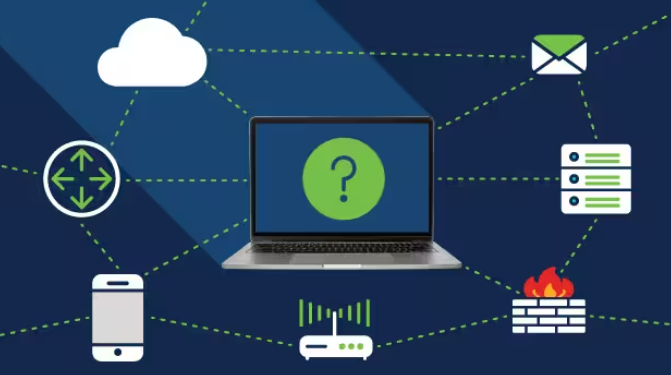Securing company networks in today’s digital age is more critical than ever. Cyberattacks are on the rise, and businesses need to take proactive measures to protect their sensitive data and ensure the continuity of their operations.
One way that companies can accomplish this is by utilizing managed IT services. Managed services provide businesses with the expertise and technology necessary to safeguard their networks from threats.
Here are the IT security services that MSPs can provide to businesses.
Table of Contents
Types of IT Security Managed Services
1.End User Protection
End users are among the most challenging security threats to mitigate because a single user can jeopardize network security by introducing viruses or revealing confidential information. This security measure covers every vulnerable point an end-user may interact with, including computers, mobiles, IoT devices, email clients, and user-controlled network gateways. It involves securing the devices that access networks and preventing malicious content from entering those networks.
Strategies to prevent breaches include using VPNs, advanced anti-malware, and user training—such as teaching employees about phishing emails (fake communications sent by attackers to hijack their credentials.
2.Vulnerability Assessment
A vulnerability assessment is a structured and comprehensive process that aims to detect and assess potential security risks in an organization’s digital and physical assets. This process thoroughly analyzes potential security threats, identifies the likelihood of an attack, and proposes appropriate strategies to mitigate or eliminate these risks. The primary objective of a vulnerability assessment is to anticipate security weaknesses and to take action to prevent them from being exploited by malicious actors.
3.DNS Threat Protection
DNS threat protection is a security solution that safeguards company networks from cyber attacks that exploit the Domain Name System (DNS). It identifies and blocks malicious traffic before it reaches the network by analyzing DNS traffic patterns and identifying suspicious behavior. This protection helps prevent attacks such as DNS spoofing, cache poisoning, and tunneling.
4.Managed Next-Gen Firewall
A next-generation firewall (NGFW) employs innovative methods to identify and prevent network threats, setting it apart from traditional firewalls. It goes beyond conventional firewalls by incorporating features such as deep packet inspection, intrusion prevention, and application awareness. NGFWs can also monitor traffic in real time and adapt to new emerging threats. This makes them an essential tool for managing network security in today’s rapidly evolving threat landscape.
5.Managed Detection and Response (MDR)
Managed Detection and Response (MDR) is a cybersecurity service that combines advanced technology, threat intelligence, and human expertise to detect and respond to cyber threats in real time rapidly. This service continuously monitors a company’s network, endpoints, and data to identify potential hazards and suspicious behavior that traditional security measures could miss. MDR services can also include incident response, threat hunting, and forensic analysis to help organizations quickly and effectively respond to cyber-attacks.
6.Compliance Validation
Compliance validation is a critical process for any IT company working to secure its clients’ networks. This process verifies that an organization’s IT security practices and processes comply with relevant industry-specific regulations and standards.
Compliance validation guarantees data security, privacy, and confidentiality of sensitive information, such as financial or personal data. To achieve this, IT companies conduct regular audits, risk assessments, and testing to ensure that their client’s IT infrastructure meets legal and regulatory requirements.
Conclusion
IT security is a vital concern for any business. By implementing a managed service, businesses can ensure that their networks are secure. It allows for proactive monitoring, threat detection, and mitigation, which helps safeguard the business from potential cyber-attacks.





